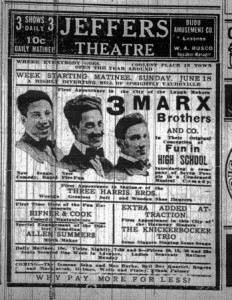In July, the US unemployment rate fell 0.1% from the month before to 3.9%. The number of unemployed individuals fell by 284,000 to 6.280 million. Many commentators have expressed satisfaction with the decline in the unemployment rate. For them this implies a strong economy.

For most economists the key to economic growth is a strengthening in the labor market. The strength of the labor market is the key behind the strength of the economy – so it is held.
If this is the case then it is valid to conclude that changes in unemployment are an important causative factor of real economic growth.
This way of thinking is based on the view that a reduction in the number of unemployed means that more people can now afford to boost their expenditure. As a result, economic growth follows suit, it is held.
The expanding pool of real wealth not unemployment the key for economic growth
We suggest that the main driver of economic growth is an expanding pool of real wealth. Fixing unemployment without addressing the issue of wealth is not going to lift economic growth as such.
It is the pool of real wealth that funds the enhancement and the expansion of the infrastructure. An enhanced and expanded infrastructure permits an expansion in the production of the final goods and services required to maintain and promote individuals’ lives and wellbeing.
If unemployment were the key driving force of economic growth then it would have made a lot of sense to eradicate unemployment as soon as possible by generating all sorts of employment.
For instance, policy makers could have followed the advice of Keynes and his followers such as Paul Krugman and employ people in digging ditches, or various other government-sponsored activities. Note that the aim here is just to employ as many people as possible.
A simple commonsense analysis however quickly establishes that such a policy would amount to depletion in the pool of real wealth. Remember that every activity whether productive or non-productive must be funded.
Hence, employing individuals in various useless non-wealth generating activities simply leads to a transfer of real wealth from wealth generating activities and this undermines the real wealth generating process.
Unhampered labor market and unemployment
Unemployment as such can be relatively easily fixed if the labor market were to be free of tampering by the government.
In an unhampered labor market, any individual that wants to work will be able to find a job at a going wage for his particular skills.
Obviously if an individual demands a non-market related salary and is not prepared to move to other locations there is no guarantee that he will find a job.
For instance, if a market wage for John the baker is $80,000 per year yet he insists on a salary of $500,000, obviously he is likely to be unemployed.
Over time, a free labor market makes sure that every individual earns in accordance to his contribution to the so-called overall “real pie”.
Any deviation from the value of his true contribution sets in motion corrective competitive forces.
What matters is not employment as such but people’s real earnings
Ultimately, what matters for the well-being of individuals is not that they are employed as such, but their purchasing power in terms of the goods and services that they earn.
It is not going to be of much help to individuals if what they are earning will not allow them to support their life and wellbeing.
Individuals’ purchasing power is conditioned upon the infrastructure that they operate. The better the infrastructure the more output an individual can generate.
A higher output means that a worker can now command higher wages in terms of purchasing power.



